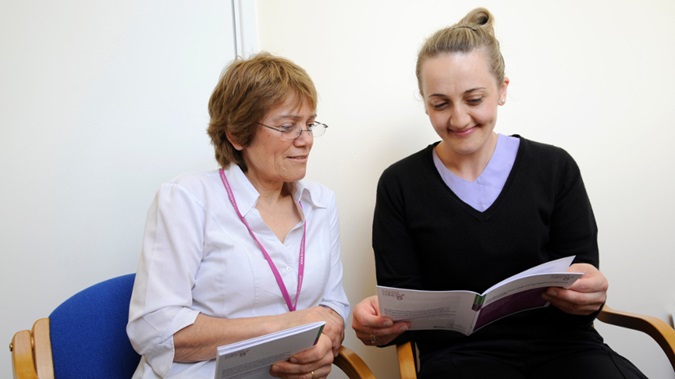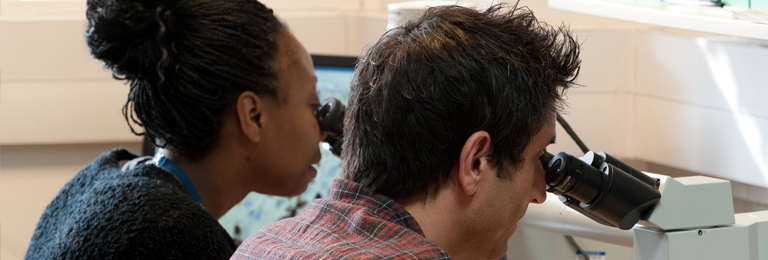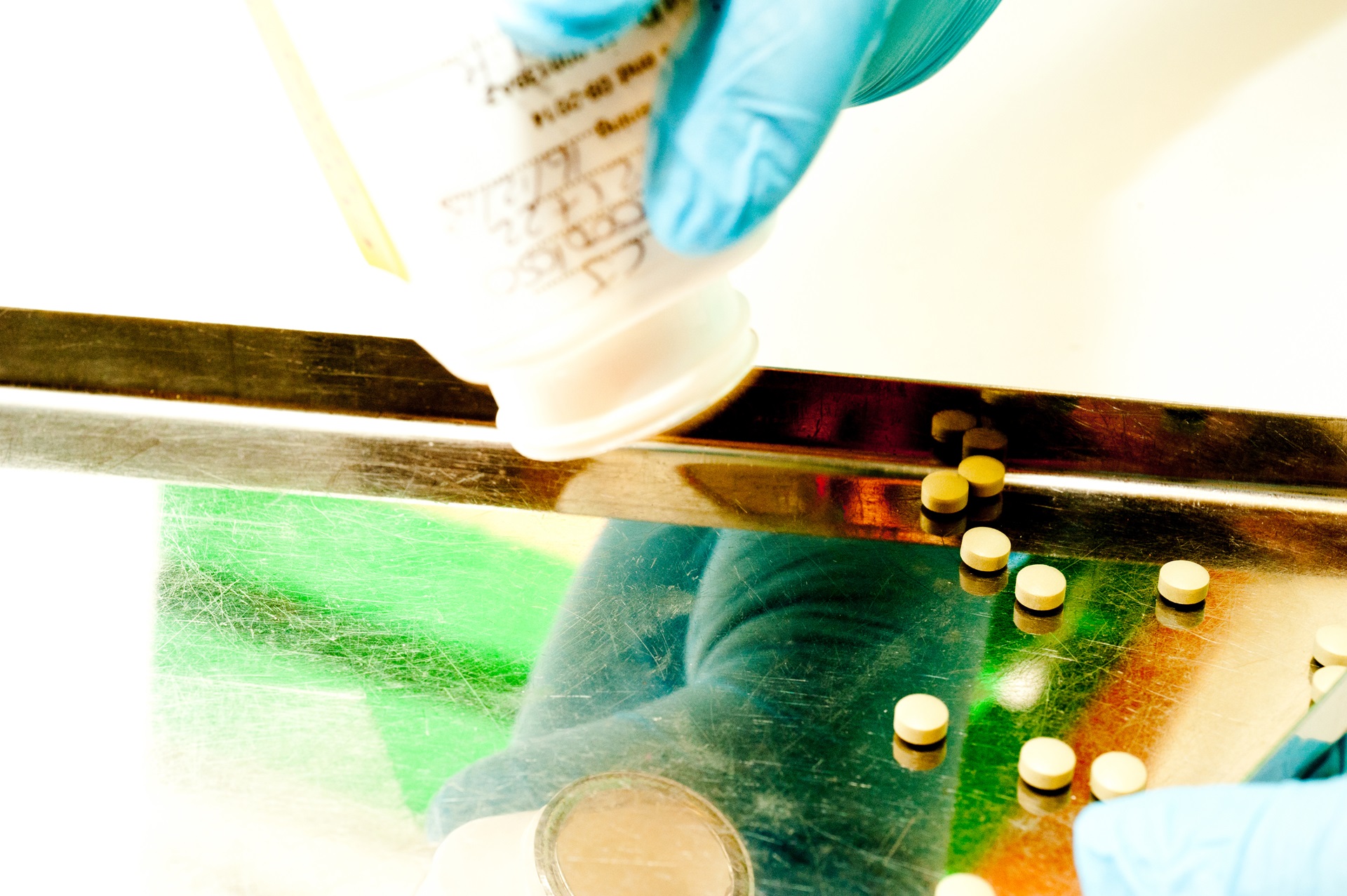Our research at ICR-CTSU
We lead ground-breaking, efficient, high-quality, and impactful trials across the phases, underpinned by applied methodology to drive forward clinical trial innovation.
How we work
With our innovative approach to trial design and use of novel methodologies with integral translational research, we aim to generate an evidence-base for smarter, kinder treatments.
Our applied approach ensures that trials are as informative and efficient as possible, often in challenging and complex settings. We work closely with patient partners to influence practice according to patient need, recognising the value of risk-adapted treatment in the pursuit of personally tailored medicine and long-term quality of life and survivorship. We remain committed to ensuring our trials are accessible, inclusive, and relevant for a broad range of patients.
.jpg?sfvrsn=999b1809_2)
Clinical trials methodology research
Our applied methodology research portfolio investigates best practice in trial design, conduct, analysis and reporting.Our expertise
We have strengths in the depth of several of our trials portfolios (which include breast, urological, gynae, head & neck and lung, amongst other rare cancers), where our senior methodologists are recognised for their specialist knowledge and contribution to the international trials landscape (radiotherapy: Professor Emma Hall ; breast cancer: Professor Judith Bliss) where our sustained partnerships with clinical key opinion leaders nationally have resulted in an exemplary record of delivering practice changing trials.
We are uniquely positioned to draw on pre-clinical and drug discovery science and have a close and established partnership with the ICR/RM’s world leading Drug Development Unit, with whom we co-lead first in human and early phase trials, translating world-leading science rapidly to the clinic by driving therapeutic innovations using our specialist expertise in efficient adaptive trial methodology led by Professor Christina Yap.
Our expertise in intervention assessment includes novel targeted drugs and immunotherapy, hormonal therapies and chemotherapy, radiotherapy (including advanced targeted technologies), drug-drug and drug-radiotherapy combinations, imaging technologies and diagnostics/companion diagnostics.
Working with investigators across the UK and abroad, we have experience in:
- successful development, implementation and delivery of basket, umbrella and platform trial designs
- novel early phase designs
- Bayesian designs in rare cancers
- threshold-crossing cohort designs for treatment de-intensification
- the incorporation of biomarkers into trial design for treatment selection and/or monitoring biological changes or response to treatment.
Maximising our data use
We maximise the use of our participants' data with the aim of gaining further understandings of mechanisms of action and markers of treatment sensitivity or resistance. Our embedded expert genomics analysis team led by Dr Maggie Cheang enables us to be true academic partners in forward and reverse translation; their outputs provide new biological insights, maximising and exploiting biological and clinical data from our trials. Her team of statistical, computational and translational scientists identifies clinically relevant biomarkers and aims to develop reliable contextual-based AI algorithms integrating -omics data with patient outcomes.
PhD studentships
Our PhD studentships benefit from inter-disciplinary clinical and methodology supervisory teams. Students are involved in real-life development and implementation of novel aspects in our clinical trials.
For current opportunities visit the ICR's main PhD project page.
Name | Thesis/Project title | Year | Supervisory team |
| Anna Wilkins | Prediction of the efficacy and side effects of hypofractionated radiotherapy in prostate cancer. | 2013-2019 | Co-primary supervisor: E HallCo-primary supervisor: D Dearnaley (RMH/ICR) |
| Indrani Bhattacharya | Optimising trial methodologies to maximise trial efficiencies: a case study in breast cancer radiotherapy trials | 2016-2019 | Primary supervisor: A Kirby (RMH/ICR)Associate supervisor(s): J Bliss, J Haviland |
| Holly Tovey | Identification of biomarkers to predict response for emerging therapeutic agents for triple negative breast cancer | 2018- | Primary supervisor: M CheangAssociate supervisor(s): Anita Grigoriadis (KCL), Andrew Tutt (ICR/Guy's |
| Harry Parr | Dynamic prediction statistical models to characterise localised prostate cancer prognosis | 2018- | Primary supervisor: E HallAssociate supervisor(s): N Porta, A Tree, D Dearnaley (RMH/ICR) |
| Lara Phillips | Efficient assessment of toxicity related outcomes in pelvic radiotherapy trials | 2020- | Primary supervisor: E Hall |
| Zhulin Yin | Development and Implementation of Efficient Adaptive Designs in Early Phase Oncology Trials for Novel Agents | 2020- | Primary supervisor: C YapAssociate supervisor(s): A Mander (Cardiff University), H Zheng (Cambridge), J de Bono (ICR), J Bliss |
| Xixuan Zhu | COUNTERPOINT: An artificial intelligence-based clinical calculator, weaving tumour genomics, microenvironment and clinicopathological data, to predict disease outcomes in women with triple negative breast cancer | 2021- | Primary supervisor: M CheangAssociate supervisor(s): C Yap |
| Szeyi Ng | Enabling better reporting of outcomes for breast cancer radiotherapy trials | 2021- | Primary supervisor(s): J Bliss, C Coles (Cambridge)Associate supervisor(s): J Haviland, I Bhattacharya (Cambridge) |
| Nivetha Sridharan | Maximizing the use of imaging in clinical trials | 2021- | Primary supervisor: J O'Connor (ICR)Associate supervisor(s): N Porta, DM Koh (RMH/ICR) |
| Georgiana Synesi | Increasing representation of under-served groups in randomised oncology trials | 2022- | Primary supervisor: E HallAssociate supervisor(s): L Kilburn, R Lewis |
| Emily Alger | Incorporating Patient-reported Outcomes (PROs) in Early Phase Dose-finding Cancer Trials | 2022- | Primary supervisor: C YapAssociate supervisor(s): A Minchom (RMH/ICR), J de Bono (ICR) |
Other PhD studentships (ICR-based)
Name | Thesis/Project title | Year | Supervisory team |
| Douglas Brand | Dosimetric and radiobiological predictors of toxicity in prostate hypofractionation clinical trials | 2017-2021 | Primary supervisor: N vanAs (RMH/ICR)Associate supervisor(s): E Hall |
Ragu Ratnakumaran | Determinants of toxicity after stereotactic body radiotherapy (SRBT) | 2022- | Primary supervisor: A Tree (RMH/ICR)Associate supervisor(s): F McDonald (RMH/ICR) , E Hall |

Patient and Public Involvement and Engagement
Patient-focused research and community engagement are integral to our approach. Find out how to get involved in helping us develop and deliver our research.

Equality, diversity and inclusion research
We want to make sure our trials are inclusive and accessible to everyone affected by cancer, no matter their background, ethnic group or personal circumstances.
